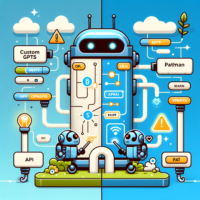
Beating the Average
How few experts can beat or transform any company
Hi, I’m Max, and I live by the mantra Beating the Averages. For many years now, I've researched a lot of technologies, used them to build digital products, and coached teams to innovate faster than their competition.
Wanna know what I’m talking about?
Averages?
A few experts with advanced technology at their fingertips leveraging LEAN principles can beat even big established players. The trick is to ruthlessly focus on building the right thing and building the thing right.
Experts who consistently beat averages are outperforming teams that are just average. Raw luck aside, successful serial entrepreneurs are beating their average peers. Developers pulling off technological stunts in a row and transforming companies along the way are beating other average teams.
In many cases, there is also the philosophy of "winner takes it all" at work, a surprisingly effective lever for outperforming competitors when you play it right: actual execution matters.
Having a business idea or vision is one thing, but the execution of that idea is what makes or breaks a company. All these "implementation details" add up. The best idea in the world will fail if execution is crappy. On the other hand, mediocre ideas can be hugely successful when cleverly executed.
If you try to do the same things that others already do, with the same processes and technologies many people already use, the best you can hope for is to become nearly as good as your average competitor.
You must change some variables here (introducing calculated risks) to eventually leapfrog into success. Otherwise, you will get beaten by competitors who do, sooner or later.
Software is eating the world
Every company nowadays is a technology company, whether they like it or not. You can accept it and turn it to your advantage, or treat IT as a cost center like in the past decades, and eventually, go bankrupt.
Companies directly depend on data and software today. Your core systems define hard boundaries on what your business can do, how fast you can adapt, or how well you can scale in different directions. How do you know what your customers will desire tomorrow? Software. How do you handle purchases and all the bookkeeping? Software. How do you acquire new customers today? Online. The list goes on and on...
Just adding more scale to IT operations (people, systems) will slow any company down and increase expenses. The behemoth will just get harder to move at all. Just a few rapid market changes (like the 2020 pandemic) might kill your company out of the blue when you are unable to adapt to changes fast.
Building on top of MVP-grade frictionware prevents rapid progress after a few development cycles and slows any company down. If your hacked-together startup product just passed the finish line for the first round of investing, the expectation is now to scale and capture market percentages. Speed and scale are everything. What prohibits scale and development speed? Crappy code and non-existent architecture. Congrats, you just validated a business idea but competitors with better technology will outpace you faster than you can say "brand building!"
My Pitch
I can show you how to sprint faster, in the right direction, by leveraging the right technology and LEAN principles. But even alone, I possess the hard skills to craft digital products on my own (and for you): fullstack software development, operations, growth hacking, automation, SRE & DevOps.
Just reciting the principles of LEAN software development here will be useless, though. You actually need a sensei (like me) to guide you forward, or you will end up with the SCRUMFALL, doing officially signed "agile" rituals and some "best practices", but still crawling along slowly.
Transforming an established business to become future-proof is painful and requires experience, not just some theories and workshops. Feelings might get hurt, culture might need to change, currently well-running technology might get replaced.
The question is yours: do you want to beat the averages?
- Number of words: 657
- Reading time: 3 minutes
- Posted: 1 year ago
Linked Categories
Click around and find out ↓

Technology
Stay ahead of the tech curve! Discover cutting-edge tools, trends, and insights tailored for solopreneurs and indie hackers driving innovation.

LEAN
Explore LEAN strategies to streamline your startup. Essential tips on efficiency and growth for indie hackers and solopreneurs. Simplify to amplify!

Business
Unlock the secrets to business mastery! Dive into strategies, trends, and tips that empower solopreneurs and indie hackers to thrive.
Related Posts →

Owning a business is exhilarating, but it’s not for the faint of heart. Many aspiring entrepreneurs fail to move forward due to fear of the unknown; however, the right tactics and mindset can help you overcome your anxieties and put you on the path to flourishing. This guide shares practical tips for growing and managing common concerns on your entrepreneurial journey.

AI Alignment Problem: a fresh perspective
9 months agoExploring a fresh approach to solving the AI alignment problem by focusing on intrinsic motivation and long-term thinking to ensure harmonious development between AI systems and humanity.

AI Alignment Proposal: v0.1
9 months agoMy personal shot at approaching the AI alignment problem. Allows for iterative refinement as well as immediate experimentation with current LLMs today.

Custom GPTs vs OpenAPI path parameters
1 year agoSeems that the AI can't do idiomatic API calls for a RESTful interface after all - or their HTTP client has some bug.
Latest Posts →

Owning a business is exhilarating, but it’s not for the faint of heart. Many aspiring entrepreneurs fail to move forward due to fear of the unknown; however, the right tactics and mindset can help you overcome your anxieties and put you on the path to flourishing. This guide shares practical tips for growing and managing common concerns on your entrepreneurial journey.

AI Alignment Problem: a fresh perspective
9 months agoExploring a fresh approach to solving the AI alignment problem by focusing on intrinsic motivation and long-term thinking to ensure harmonious development between AI systems and humanity.

AI Alignment Proposal: v0.1
9 months agoMy personal shot at approaching the AI alignment problem. Allows for iterative refinement as well as immediate experimentation with current LLMs today.

Custom GPTs vs OpenAPI path parameters
1 year agoSeems that the AI can't do idiomatic API calls for a RESTful interface after all - or their HTTP client has some bug.

